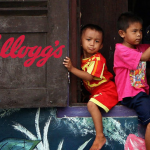
US bans solar panel materials from Chinese company due to its use of slave labor
Wednesday, June 30, 2021 by Virgilio Marin
http://www.products.news/2021-06-30-china-solar-panel-materials-banned-slave-labor.html

The Customs and Border Protection (CBP) banned imports of a key solar panel material from a company that allegedly uses forced labor in China’s Xinjiang region.
The White House announced on June 24 that the CBP issued a “withhold release order” on silica-based products manufactured by Xinjiang-based Hoshine Silicon Industry and its subsidiaries. All upcoming shipments from the firm would be seized and detained under the order.
Silica-based products are raw materials that are commonly used in solar panel production. They include polysilicon and monocrystalline silicon.
Hoshine was also among the five Chinese organizations that the Department of Commerce recently added to its trade blacklist for using forced labor or aiding Beijing’s human rights abuses in Xinjiang. These organizations included three other Xinjiang-based Chinese companies involved in the production of raw materials for solar panels and the state-owned Xinjiang Production and Construction Corps.
The Department of Labor also included Chinese polysilicon in its newly updated list of goods known to be produced by slave labor. The inclusion was made to put pressure on American solar manufacturers to remove Chinese components from their supply chains. Currently, Xinjiang produces around 45 percent of all polysilicon used in solar panels worldwide. Other parts of China make thirty-five percent while other countries manufacture the rest.
America’s recent trade moves are part of an intensifying crackdown on forced labor in China. Early this year, Washington banned all cotton and tomato imports from Xinjiang due to their ties with slave labor. (Related: US solar industry has to deal with the fact its supply chains are reliant on Xinjiang, where genocide and slave labor are rampant.)
Reacting to the CBP’s most recent ban, China’s foreign ministry commented that Beijing would take all measures to protect Chinese companies’ rights and interests. For its part, Hoshine Silicon said that it supported the foreign ministry’s reaction. It added that the ban’s effect on its business would be minimal since the firm did not directly export industrial silicon to the U.S.
China’s campaign of repression equal to genocide
The Chinese government is engaging in a campaign of repression against the Uyghurs and other Muslim minorities in Xinjiang. Reports indicate that up to a million Muslims in the region have been detained in internment camps where they are reportedly tortured, sexually violated, forced to work and indoctrinated. The U.S. and other governments declare the campaign a genocide.
In a June 24 press conference, Secretary of Homeland Security Alejandro Mayorkas said that Chinese companies such as Hoshine Silicon “profit from these abuses” by selling cheaply-made goods to buyers in the U.S. and other countries.
“That is unfair to law-abiding businesses that respect international labor standards. It is also unfair to consumers who may unwittingly purchase goods made in conditions of modern-day slavery,” he said.
Beijing had repeatedly denied allegations that it mistreated its Muslim minorities. In a virtual United Nations conference last February, Chinese Foreign Minister Wang Yi insisted that Xinjiang minorities have never been coerced into labor or oppressed for their religious beliefs. He added that allegations to the contrary were “fabricated out of ignorance and prejudice.”
However, government and corporate sources obtained by researchers from the U.K.’s Sheffield Hallam University showed that labor transfers in Xinjiang were made “within an environment of unprecedented coercion” and “undergirded by the constant threat of re-education and internment.”
A study from the nonprofit Center for Global Policy also found that more than half a million people in Xinjiang have been coerced into picking cotton. Researchers arrived at this finding after analyzing government documents and state media reports involving the state’s labor transfer programs.
Visit CommunistChina.news for more reports linking Chinese imports to human rights abuses.
Sources include:
Tagged Under: Tags: Beijing, big government, CCP, Chinese Communist Party, chinese imports, communist China, evil, forced labor, genocide, human rights, slave labor, solar energy, solar panels, uyghurs, White House, Xinjiang
RECENT ARTICLES


After the Biden regime gives the media their marching orders, they push a ‘boom’ that doesn’t exist
By News Editors

Cost of doing business? Monsanto pleads guilty to 30 environmental crimes, agrees to pay measly $12 million fine
By Ethan Huff

The pandemic exposes vulnerabilities in global networks connecting manufacturers, suppliers and buyers

Kellogg’s commits to phase out use of wheat, oat products produced with glyphosate by 2025
By Cassie B.
COPYRIGHT © 2017 PRODUCTS NEWS


